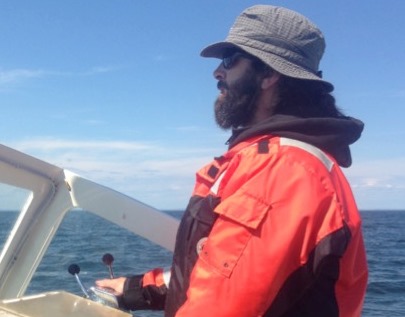Lowell Lecture
Changing Distributions of Large Whales: How Climate, Oceanography, and Biology Influence Movement of the Largest Animals on Earth
Date & Time
Nov. 8, 2017 at 7 p.m. - 8 p.m.
Location
New England Aquarium
1 Central Wharf Boston, MA 02110
Driving Directions
Speaker(s)
Dan Pendleton, Ph.D., Research Scientist, Anderson Cabot Center for Ocean Life at the New England Aquarium
Presenting Organization
Topics
Contact
Maggie See (AquariumLectures@neaq.org, 617-226-2183)
The mystery of how and why large whales know when and where to migrate has perplexed humankind for thousands of years - first in their attempts to hunt and kill them and now to save them from extinction and exploitation. Right and bowhead whales are among the largest animals on Earth, yet they feed on some of the smallest marine organisms, zooplankton. This connection through the food web dramatically highlights associations of species linked closely to climate-induced changes in the oceans, such as recent rapid warming of the Gulf of Maine. Large filter-feeding whales, as ecological sentinels, are therefore a highly visible sign of underlying ocean health and conditions. This lecture will explore pressing questions surrounding large whale conservation and describe cutting-edge quantitative methods being used to understand whale distributions in the Anthropocene.
